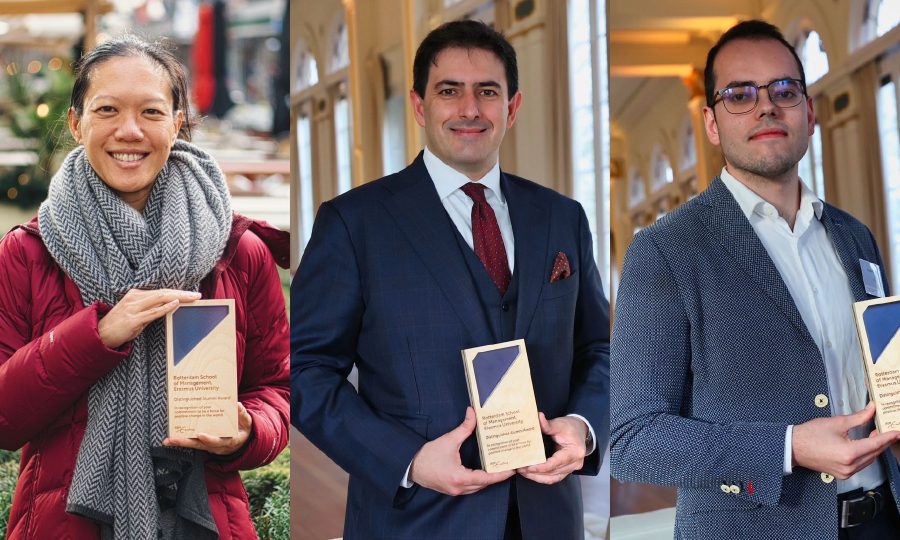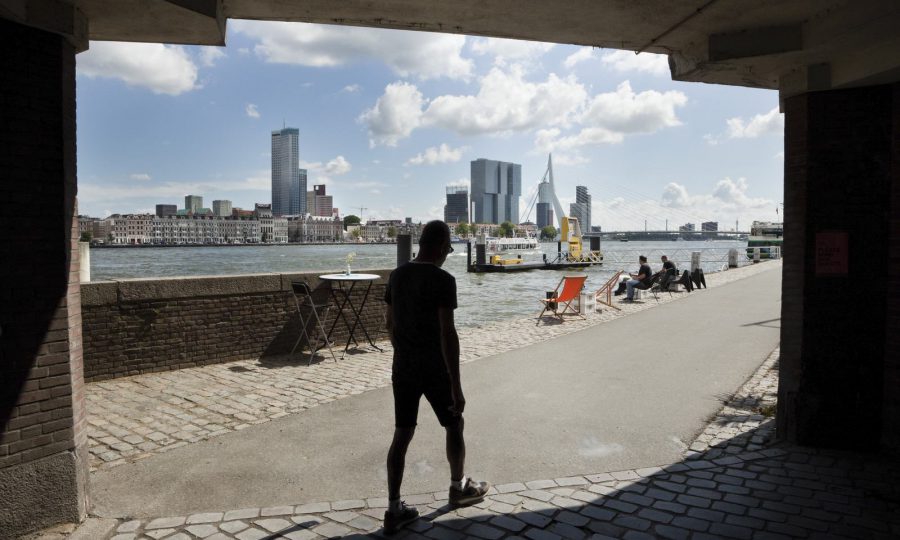Do you have what it takes to lead a global team? We have the checklist.
What is it really like to uproot your life for a job on the other side of the world?

It’s your dream job: the right role, an excellent salary, working with brilliant colleagues for a company with a fantastic reputation. It’s the perfect fit. And then you realise it’s based 5,000 kilometres from home.
Making the leap changes your life, forever. Not only do you leave everything you know to live and work in a completely different culture, but you also gain something you simply can’t get in your own country: a truly international perspective.
As the world becomes ever smaller, more and more international businesses of all sizes are looking for staff with knowledge and experience of working in a different country. And if you show commitment to doing that, it could be a huge addition to your CV. But what’s the reality like? What are the real challenges and opportunities of living and working in a foreign country – especially one where you don’t speak the language? And how do you make a success of the job and, crucially, enjoy the experience?
“It’s all about mindset,” says Dieter Schulz (MBA, 1996). “Every country has positives and negatives so if you look for the positives, you’ll find them.” Schulz speaks from experience. Born in Austria, he went to a French school and US university before doing his MBA at RSM in Rotterdam. His CV includes senior roles for Mars, Mondelez, Danone and ICL, and his career has taken him to France, Germany, Austria, Cyprus, Turkey, Malaysia, Bulgaria and Romania. His current position as Chief Operating Officer at Refresco is based in the Netherlands. He also has an English wife and two now grown-up children, based in the UK and Austria.
“I certainly see myself as a global citizen,” he says. “You have to embrace the experience. It will be different from what you’re used to, but you have to accept from day one that that is how things are. In some places, things work slightly better, or quicker; other places not, but you’re not going to change that. It’s you who has to adapt to your new country, not the other way round. If you go in with a superior attitude, you can’t possibly succeed.
“Because I moved with multinationals, one consistent was company culture,” he says. “But it’s vital, especially for a life outside work, to embrace local customs and local life, especially if you take your family with you. Locals’ friendship is always the most enriching. If you can learn even just a few words of the local language, that opens up many doors – people appreciate you’ve made the effort.”
You have to embrace the experience. It will be different from what you’re used to, but you have to accept from day one that that is how things are.
Gloria Chang (MBA, 2007) agrees that learning the language is vital for a successful new life. She left her native Taiwan to do her MBA at RSM, but while on the course she married an Italian – moving to his home country was a challenge. “My English was good but it’s not widely spoken in Milan, and getting a job was not easy without fluent Italian. So, my main focus for a year-and-a-half was learning the language. My first job in Italy was with Circle Line Communications, an Italian marketing and communications agency based in Milan – they were looking for someone who could speak English and Chinese as I was mainly responsible for their clients in China. But then I joined Twist, a Hong Kong-based fashion retailer with a buying office in Milan, who wanted an administrator who could speak Chinese, Italian and English. The language was definitely a huge advantage.”
Next, the couple moved to Trieste – still in Italy but “near the Slovenian border and a completely different culture to cosmopolitan Milan, so that was another learning experience”. Then, just before the pandemic hit, Gloria’s husband Stefano got a new job, so she moved with him again to another new country, Portugal, where she is now a wine and food blogger and qualified sommelier, and supplements her income as an interpreter. “This culture has similarities with Italy, but Covid made it harder, because I couldn’t get out and meet people. My husband is very social and really struggled with moving to a place that he hasn’t been able to get to know. If you live abroad, you need to learn how the place works.”
Schulz agrees. “My background means I have always been very adaptable, which is crucial in any new place. If you live in Istanbul, it will take you two hours to get to work because traffic is chaos. In Malaysia you make an appointment for 3pm and they turn up at 4pm. And you need to learn as you go – at my first team meeting in Malaysia everyone said “yes” and I thought: ‘This is easy!’ Then when I spoke to everyone individually it turned out ‘yes’ means ‘yes, I’ve acknowledged you, I don’t necessarily agree!’” So, you have to find another angle, a way to work that suits that culture. But it’s you who has to change, and you need to understand that and be humble about it.”
So how do you prepare to live in a new place? “You have to set yourself up psychologically,” says Chang. “Read up of course, and if there’s an opportunity to do a trial period, take it. When you first arrive, you don’t know anyone, you don’t know the country or the people or the culture, and even if you can speak the language, you can feel very lonely to start with. You need to know that you can cope with that loneliness and understand that it will pass.”
And once you have the bug, don’t be surprised if you keep moving. “We keep talking about our next destination,” says Chang. “We like what we’ve seen of Portugal and will stay a couple of years, and then we’ll be off again, but I don’t know where. We’ll go where life takes us.”
Unsurprisingly, Schulz is also adamant he’ll be on the move again. “Every few years we get itchy feet, we say ‘we’ve seen this country, what’s next?’ There’s an awful lot of the world still to see. I’m Austrian by birth, and very proud of my country. But I think of my home as being wherever I happen to be right now. It’s a privilege – and always a great opportunity.”



